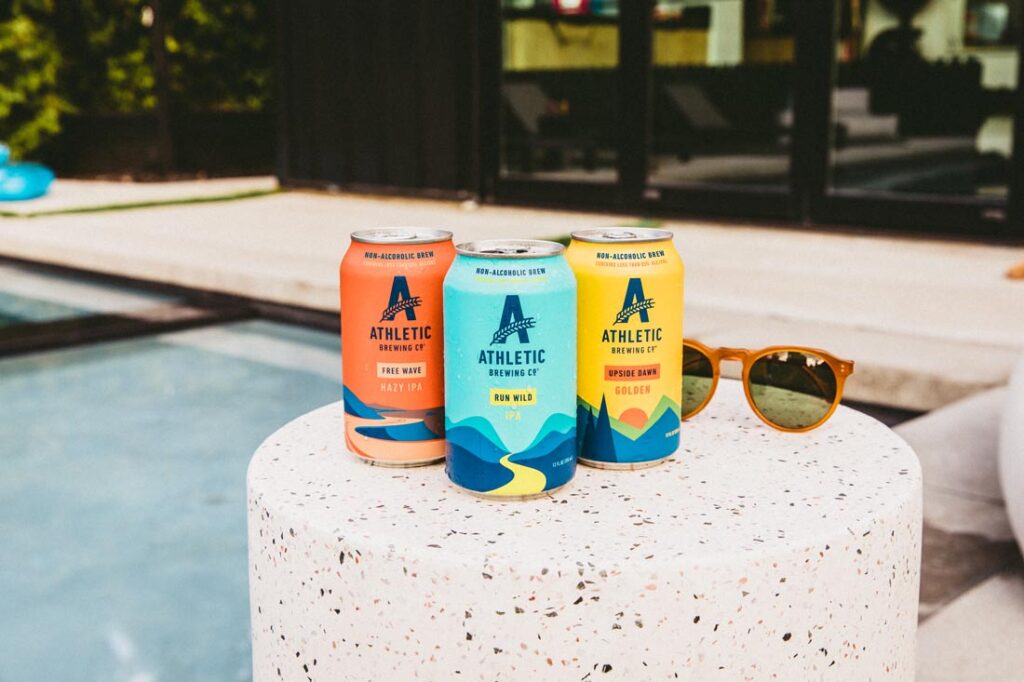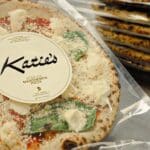When Pauline Idogho was pregnant and tired of seltzer and lime as her go-to drink, she began dreaming of something sophisticated—something that still felt like an indulgence.
Throughout her roughly 15-year career in investment banking, international development and renewable energy financing, she traveled to over 30 countries across Europe, Asia, Africa and the Middle East. At a client dinner one evening, she was buying everyone wine and realized there was nothing for her to drink. And the concept for Mocktail Club was born.
“I wanted to recreate the complexity and nuance of a great cocktail without the alcohol, so [I] began creating flavor profiles that matched the vibe of the places I traveled,” she says.
After her 2019 launch of products such as the Bombay Fire—which features pomegranate, chili and tea—Mocktail Club was a winner of a prize from Black Ambition, whose founder, Pharrell Williams, invests in and supports Black- and Hispanic-owned companies. The growth in the nonalcoholic (NA) space since she launched her company has encouraged Idogho, and she’s definitely not alone.
Rising demand for nonalcoholic drinks
If consumer demand is any indicator, the number of nonalcoholic brands will only continue to increase. According to Nielsen, over a fifth of U.S. adults participated in dry January in 2019. 52% of drinkers are replacing alcohol with nonalcoholic beverages, reports Pattern Data Science. In 2022, data analytics firm Statista reported the nonalcoholic drinks market in the U.S. accounted for over $496 billion in sales and is expected to grow nearly 4% every year.
Such rapid expansion has led to bottle shops opening across the country. The largest, Boisson, has six locations in New York, three in California and one coming soon in Florida, and there are similar shops in Pittsburgh, Denver, Chicago and Houston.
Jess Selander, whose Pacific Northwest-based Jøyus wine launched in September 2021 and now lines shelves at most of these shops, says to have enough nonalcoholic options to fill an entire store is not something she thought she’d see in her lifetime.
Sober for 17 years, she remembers a time when there was just one sparkling nonalcoholic wine in the U.S., and it was far too sweet. “I wanted something more dry that had a lot more of the wine characteristics to it,” she says. “And after trying to find something else for years, I was like, ‘I’m going to try and do this myself.’”
Pushing past negative feedback
Selander says when she began her quest eight years ago, she reached out to well over 100 people in the wine industry, but the response was overwhelmingly negative.
“I was told over and over again, ‘Nobody wants that, there’s not a market for that,’” she says. “How the wine industry really feels about NA [nonalcoholic] wine and the [nonalcoholic] wine drinker is not very positive.”
Though she eventually found a way to create products that tasted the way she wanted them to taste, she was inventing her own wheel instead of reinventing one that had already been created.
“Wine has been around for thousands of years, and NA wine has not,” Selander says. “It’s so new, and we’ve had to invent our own processes and techniques. But when you’re not afraid to ask questions and be open to other people’s advice, you learn faster and go farther.”
And though, like Idogho, she’s thrilled by the growth in the nonalcoholic drinks space, she’s quick to point out that a surge in production doesn’t equate to a large space.
“Even though these bottle shops are popping up, it’s like saying there’s 40 coffee shops across the country, and coffee is really booming,” Selander says. “If you walk into a restaurant or a grocery store, the options are still very limited. There’s still a lot of work to do.”
Changing the narrative
Inclusivity
Raising public awareness often starts close to home, where bars and restaurants that prioritize alcoholic over nonalcoholic beverages can be some of the biggest advocates for a true shift in drinking culture. And though it will take time for an expansive shift to take place, nonalcoholic bars such as Austin’s Sans Bar, which is owned by a substance abuse counselor, and Getaway in Brooklyn’s Greenpoint neighborhood, have already started the important work of creating inclusivity for the sober and sober-curious crowds.
One fast-moving frontrunner, stocked widely in both nonalcoholic and mainstream bars across the country, is The Pathfinder. Launched in September 2021, the hemp-based spirit is made with 20 different botanicals, including wormwood, angelica root, saffron and Douglas fir—an ingredient co-founder and Seattle native Chris Abbott says makes it a bit like a Pacific Northwest Amaro.
Working with veteran branding experts Guy Escolme and Steven Grasse, Abbott, himself a cannabis industry veteran, felt that a hemp-based spirit was the path forward in the beverage world.
“People are calling us the Pappy van Winkle of NA,” he says. “We have focused on getting Pathfinder in some great bars in Seattle and New York City, and that has worked in our favor to give us visibility.”
Quality
He likes that other brands, such as Athletic Brewing Co., are becoming so visible that people’s understanding of what nonalcoholic drinks can be is shifting.
“I was on a little island off the coast of Vancouver and went to their local grocery store, and they had Athletic beer,” Abbott says. “The spirit side is much less developed than the beer side, and you can see how big it can be just by looking at NA beer. It points to this idea that the experience in flavor is so much. Most of the time, we associate drinking with alcohol. And if you can create a craft beer that’s delicious, do you need the alcohol? I want to understand that question for myself.”
He also points to the fact that, on most menus, nonalcoholic cocktails cost less than their counterparts, giving the false impression that because something has alcohol, it’s worth more.
“Pathfinder is more expensive than Tito’s,” he says. “There’s way more care and attention to detail and beautiful ingredients than [in] many of the more mainstream spirits. It’s not inferior. It’s on par with everything else.”
Nonalcoholic drinks in a prestigious market
One of the biggest ways to shift the misperception that absence of alcohol equates to lack of value will likely come from the court of public opinion.
Selander’s NA Sparkling Rosé won a gold medal in the San Francisco International Wine Competition—one of the oldest and largest blind wine competitions in the world. She says Jøyus was among over 3,000 entries submitted from over 31 countries and was the only premium nonalcoholic wine on the market to win gold in an industry wine competition.
Kraig Rovensky, a partner at the Seattle bar Life on Mars, where Pathfinder first launched, has been working with alcohol brands most of his career. He says he never came across a nonalcoholic brand that excited him until his first few sips of Pathfinder.
“I realized there is a better way, and this was it,” he says.
Abbott laughs when he remembers how Rovensky was meant to help them find a global brand ambassador but ended up becoming their first employee instead. It’s not unlike the path that led two unconventional partners to come together to create one of the country’s leading nonalcoholic beer brands, Athletic Brewing Co.
Expanding options
In 2012, Bill Shufelt decided to give up drinking for a month after his high-stress life as a hedge fund manager—entertaining clients where alcohol was always part of the occasion—did not mix well with his early-morning schedule training for marathons.
A beer lover through and through, he searched for nonalcoholic beer, hoping to enjoy what he loved without the consequences, only to discover a profound lack of options.
When working to raise money for a dedicated NA brewery, Shufelt was rejected hundreds of times, and most brewers he spoke with told him there was no data to suggest nonalcoholic beer was anything anybody wanted. When he put out an ad for a brewer, John Walker responded, test-brewing over 100 batches before launching in May 2018 at six Whole Foods locations in Connecticut.
Today, Athletic’s locations in San Diego and Milford, Connecticut, remain the only NA-dedicated brewing facilities in the world, and the company has raised $173.5 million across five rounds of funding, with $50 million of that coming most recently from Keurig Dr Pepper. Celebrities, athletes and serious business moguls have all jumped on board as investors and brand ambassadors, showcasing just how cool a nonalcoholic beer can really be.
Hopefully, the rest of the space will show similar signs of growth, popularity and staying power. Selander, whose Jøyus is in over 240 stores across the country, says her long-term plan is to be here long-term.
“It even says it on our bottles,” she says. “We’re here to support people on their sober journey, whether it’s one glass or the rest of your life.”
This article originally appeared in the July/August 2023 issue of SUCCESS magazine. Photo courtesy of Athletic Brewing Co.











